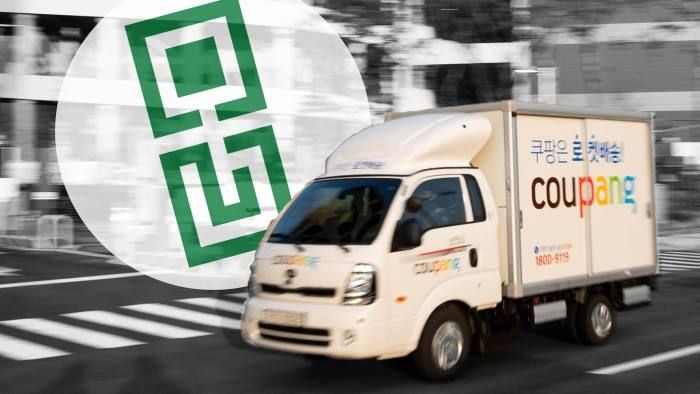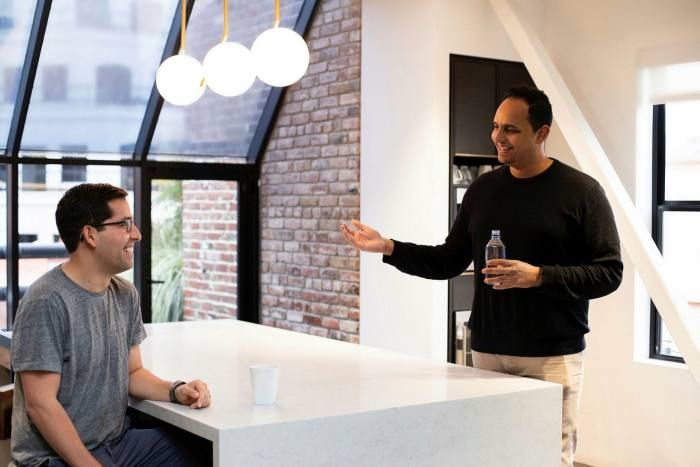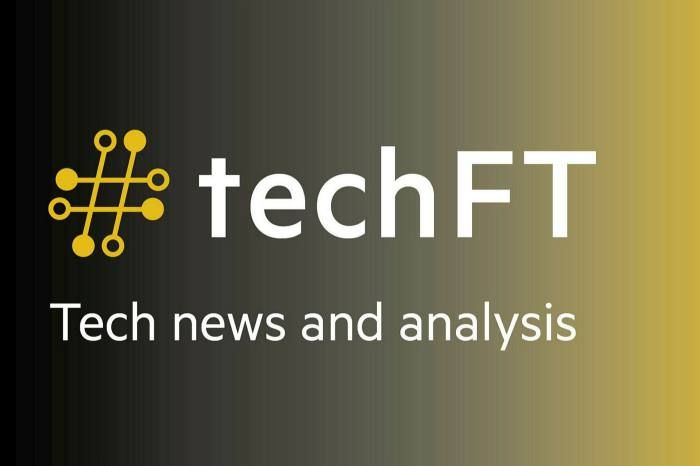Make sense of it all Choose an FT plan that suits you best. Pay annually and save 20%.
Publicity-shy VC firm Greenoaks has bumper year

We’ll send you a myFT Daily Digest email rounding up the latest Venture capital investment news every morning.
When South Korean online shopping company Coupang listed in New York last month, jumping to a valuation of $80bn, it was also a huge win for a little-known but fast-rising Silicon Valley venture capital firm.
Greenoaks, a nine-year-old firm in downtown San Francisco, had backed Coupang for years, culminating in a $430m convertible debt deal in 2018, a few months before SoftBank invested $2bn into the ecommerce start-up.
The deal allowed Greenoaks to amass a growing stake in the retailer in lieu of interest payments, and let the VC firm convert its notes into shares during an initial public offering at $3.70 a share, according to public documents(opens a new window).
At Coupang’s closing price of $47.31 on Thursday, the total stake held by Greenoaks was worth $13.5bn, less than SoftBank’s $26.9bn stake, but still one of the biggest outcomes for a venture firm during the recent run of blockbuster listings.
The Coupang IPO provided a glimpse of how Greenoaks’ concentrated strategy, which has seen it invest more than three-quarters of its capital in its top 10 companies, is beginning to pay large dividends. The firm has told its investors it aims to make only five or so new investments a year.
From 2012 to the end of last year, Greenoaks funds had gained 51 per cent annually after fees, according to a presentation viewed by the Financial Times. By comparison, an index of venture funds compiled by Cambridge Associates had an annual return(opens a new window) rate of 15.9 per cent over the past decade.
Although a large majority of the gains remained unrealised, Greenoaks said it had suffered impairments of less than 2 per cent of its invested capital. The firm has invested more than $3bn in total, said one person familiar with its performance.
Greenoaks has achieved the returns during a favourable environment for tech investors, especially for firms that focus on relatively mature start-ups that already have revenues running into the tens of millions of dollars.
But the gains also show why a new generation of investors — who are quick moving, with backgrounds in the public markets and a willingness to pay top prices for the fastest-growing companies — have helped to make the past decade hugely lucrative for venture capitalists.
Greenoaks’ other investments are beginning to pay off. It owned 9 per cent of the food delivery group Deliveroo when it was a private company. After selling more than $70m worth of shares in Deliveroo’s offering, it emerged with a stake worth about $470m during the first day of trading on Wednesday.
It also has large bets on the chat app Discord, the stock-trading start-up Robinhood and the restaurant payments system Toast(opens a new window), all of which are considering public offerings this year.
Greenoaks, whose website(opens a new window) contains nothing but a logo and contact details, is led by Neil Mehta, a fast-talking Silicon Valley native with government and economics degrees from the London School of Economics.
Mehta turned to venture capital after a stint in Hong Kong at a special situations investing group backed by the hedge fund DE Shaw, setting up an early version of Greenoaks in 2010. Benny Peretz, a former investor at DE Shaw, joined him as a partner two years later.
A Batman fan, Mehta named some of his funds after characters and locations in the comic series. One vehicle with a large stake in Coupang goes by "Carmine", after the mob boss and frequent Batman enemy.
People who have worked with Greenoaks describe it as a fusion of venture capital and value investing, backing fast-growing but lossmaking internet companies at prices it views as discounts to their future cash flows.

"A lot of investors we work with, they’re either too optimistic or too pessimistic," said Ryan Akkina, a senior investment team member at the Massachusetts Institute of Technology’s endowment, one of the earliest backers of Greenoaks. "Neil is very good at threading that needle."
Greenoaks has also developed a complicated relationship with SoftBank, which has placed big bets on several of the firm’s largest investments. Twice Greenoaks has reduced its stakes in companies after it disagreed with SoftBank’s approach to growing the start-ups, the firm has told investors.
For example, four years after leading a $25m round of funding in the Indian hotel group Oyo, Greenoaks sold 85 per cent of its stake to SoftBank, returning 15 times its money, said one person familiar with the deal.
Some start-up founders who have worked with Greenoaks said they had not heard about the firm until they were introduced through a mutual connection, but Mehta arrived with volumes of research on the company and its competitors.
"He understood our vision really, really deeply," said Henrique Dubugras, co-chief executive of Brex, which received a $1bn valuation after Greenoaks invested in 2018. "And then they just leaned in super hard."
When an investor backed out on the eve of a deal to purchase tens of millions of dollars shares from Brex employees, Dubugras called Mehta to ask for advice. Mehta took six hours to reanalyse the business and agreed to fund the entire deal, Dubugras said.
Daily newsletter

#techFT brings you news, comment and analysis on the big companies, technologies and issues shaping this fastest moving of sectors from specialists based around the world. Click here to get #techFT in your inbox.
Before making its first investment in Deliveroo in 2015, Greenoaks analysed the company’s economics down to the level of individual neighbourhoods, said one person familiar with the process. Later, Peretz became one of the most vocal supporters for the company’s push into delivery-only kitchens, helping convince other board members to back the plans, the person said.
Carlos Garcia, chief executive of the Mexican used car marketplace Kavak, said Mehta ended an introductory call by asking if he could visit the company’s headquarters near Mexico City the next day. Mehta flew down and spent two days inspecting Kavak’s business.
One week after returning to the states, Mehta reconnected with Garcia, who agreed to let Greenoaks lead the $100m round of funding ahead of SoftBank and the private equity firm General Atlantic.
"What allowed him to take the lead was his level of assertiveness," Garcia said.
Latest on Venture capital investment
Follow the topics in this article
Comments
Useful links
Services
Tools
The Financial Times and its journalism are subject to a self-regulation regime under the FT Editorial Code of Practice.











